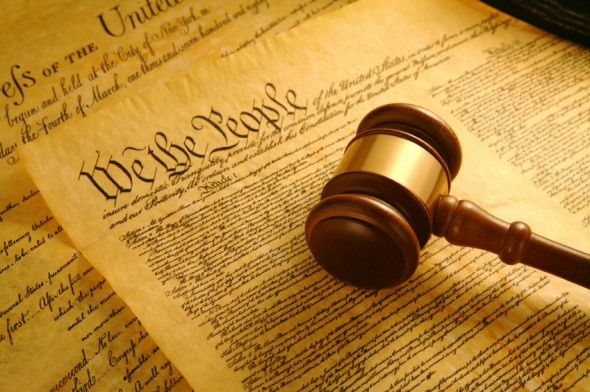
By Joe English
This week’s question: “Should schools compromise students’ civil rights in order to create a safe educational environment?”
America has been a symbol of democracy since 1776. As expressed in the Declaration of Independence and Bill of Rights, American citizens are guaranteed basic human freedoms and civil liberties. However, these rights have been restricted at times to “keep the peace,” especially in recent months. Students peacefully protesting at UC-Davis were pepper-sprayed by police. The NYPD threw thousands of “Occupy Wall Street” demonstrators out of a New York City park last month. In schools, students are denied certain civil liberties every day to create a safe and orderly environment. But does creating a safe environment—especially in schools—justify infringing upon students’ constitutional rights? Here are some key arguments on both sides of the issue: you decide:
Yes, schools SHOULD be able to compromise students’ civil liberties:
- Students are not adults and are not guaranteed the rights of adult citizens. Because they aren’t fully grown, they can’t reason or draw from past experience to make decisions like adults. For this reason, they aren’t allowed to vote, own guns, drink, or exercise all of their constitutional rights until the age of 18.
- While at home, students are under the protection and care of their parents. When their parents send them to school, they transfer this responsibility to the school. This gives school administrators the legal right to restrict student civil liberties and punish them for rule breaking to ensure the safety of all students.
- Students go to school to learn. If other students are being disruptive, threatening them, and talking back to teachers all the time, then a quality education is impossible to deliver. In order to provide an effective education, schools may need to limit certain civil liberties (like freedom of expression) and disruptions. This may include preventing student assemblies, clamping down on bullying, censoring student language, etc.
- There are many precedents where public institutions limit rights for the greater good. Noise ordinances, curfews, and gun regulations are just a few examples of legal restrictions the government can impose to maintain the general peace. A school is just another organization that can impose restrictions for the benefit of the larger population.
No, schools SHOULD NOT be able to compromise student civil liberties:
- Students are American citizens, and therefore are guaranteed their constitutional rights. Compromising these rights—no matter what the reason—goes against these values and is essentially un-American.
- In a school, students’ “inalienable rights” are put in the hands of unelected administrators. These administrators decide which rights to revoke and which to grant, which can lead to arbitrary and excessive rules. Under the guise of creating a “safe environment,” schools can legally censor the student press, punish students for speaking in class, and prevent students from going to the bathroom. If you give schools room to revoke some rights, you create the opportunity for abuse.
- In every grade, schools preach about American democracy, equality, and basic rights. While describing our bloody revolution, wars to spread freedom, and superior governing system, our schools ingrain the ideals of democratic rights into students’ minds. Yet in those same classrooms, students’ basic
civil liberties are revoked and those American values are ignored. It is the duty of schools to uphold the values they preach. - In the constitution, citizens are guaranteed basic rights unless they are used to infringe upon other citizens’ rights. Instead of creating sweeping laws revoking rights of all students as a precautionary measure, schools should simply hold rule-breakers more accountable. Not only would this preserve the right to due process, it would preserve the rights of harmless, law-abiding students that schools aim to protect.
So what do you think? Should schools be allowed to compromise students’ civil liberties to create a safe educational environment? Leave a comment below with your opinion, or share other arguments that advocate your side of the issue.
